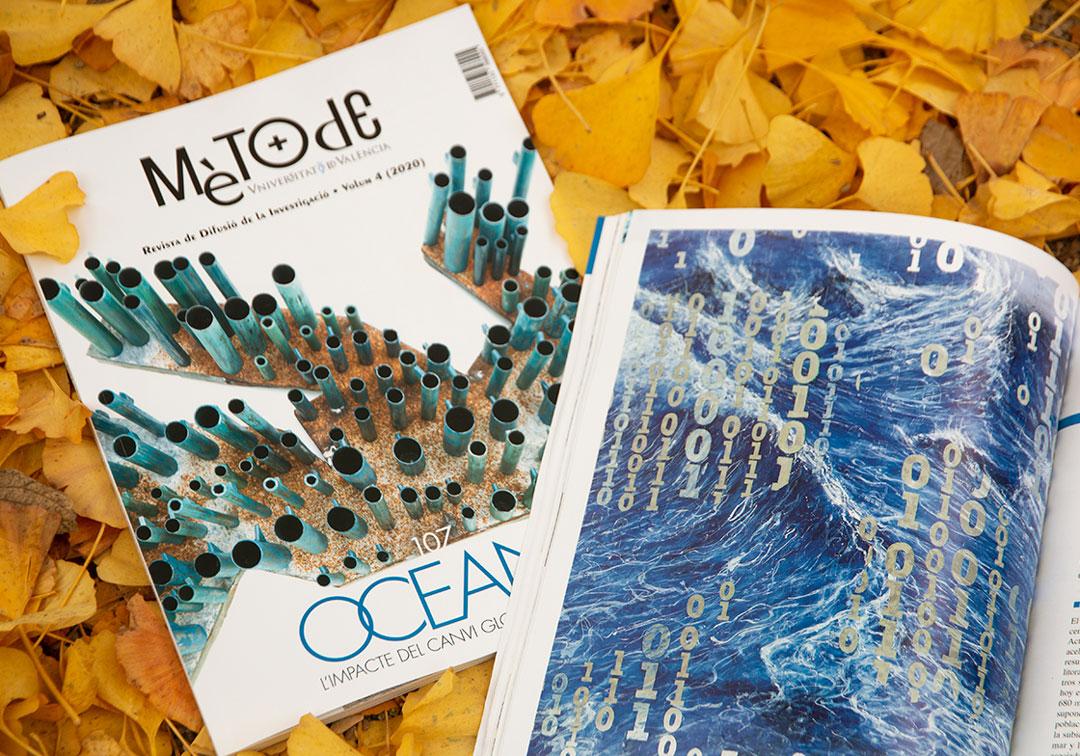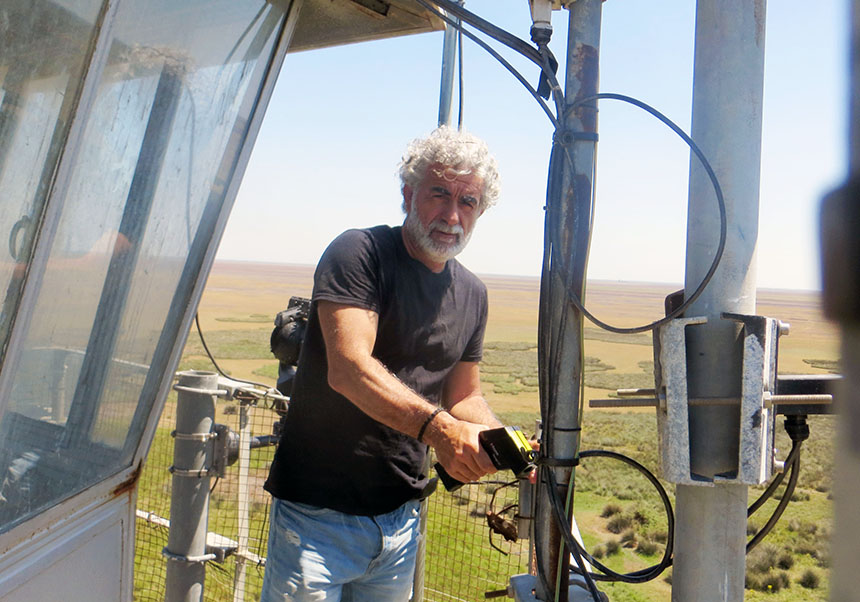The impact of Global Change on the oceans in the new issue of Mètode
- Mètode
- December 17th, 2020

The oceans, climate and welfare retain a close relationship that global change is changing. "Océanos" (Oceans), the new issue of the journal Mètode, published by the Office of the Vice-Principal for Research of the Universitat de València, focuses on the main impacts that human activity has on marine ecosystems: climate change, pollution, sea level rise or biodiversity loss are some of the issues tackled by the monographic issue, coordinated by Carles Pedrós-Alió (CNB-CSIC), Josep Maria Gasol (ICM-CSIC) and Rafel Simó (ICM-CSIC). According to the coordinators, "scientific knowledge based on proved observations and interpretations should guide decisions on the management of resources and the environment", and point out that "the sea is a climate regulator and a reservoir of biodiversity, a source of food and other resources, a means of transport, a cultural asset and a generator of the tourism industry".
A special issue on the human footprint on the environment in the context of a health crisis. The director of Mètode, Professor Martí Domínguez (Universitat de València), highlights in this regard that “the impact of COVID-19 should not make us lose sight of the environment” and that “we must still continue to make efforts in order to reduce to the utmost the possible effects of human activities on the planet.”
The issue has featured the collaboration of Professors Carles Pelejero and Eva Calvo (ICM-CSIC), who focus on the global stress of oceans resulted from the increase of anthropogenic CO2. Francisco José Navarro (UPM), for his part, analyses the role of glaciers and ice sheets in the rise of the sea level. And Belén González Gaya (UPV-EHU) presents us a pollution that at first appears to be invisible, but which has a great impact on marine ecosystems, such as chemical pollution. The last three articles of the monographic issue centre on the Mediterranean. Therefore, María José López García (Universitat de València) offers a summary of satellite data on the warming of the Mediterranean throughout the 35 years. Magda Vila, Jordi Camp y Elisa Berdalet (ICM-CSIC) adress tbe causes of the increase in toxic microalgae proliferation on the Mediterranean coast. And the issue concludes with an article by Arnau Carreño (Universitat de Girona), Àngel Izquierdo (ICO) and Josep Lloret (Universitat de Girona) on the impact of global change on species of potential use for the production of new medicines.
The new issue of the journal also counts on the collaboration of the artist García Bel, creator of the cover and the inside dividers, belonging to his series "De mar", a work full of meaning on the relationship between oceans and human beings.
COVID-19 and gender perspective
The new issue also continues with the analysis of various aspects of the COVID-19 pandemic. The texts by Carme Valls-Llobet and Alícia Villar-Aguilés offer a vision of the health crisis from a gender perspective, while the articles by Elena Semino and Laura Filardo-Llamas deal with the communicative analysis. Reflection and dissemination articles which are complemented by a report by Ferran Antequera on graphic medicine and a review of neuroscientific research on the differences between men and women by Carla Sanchis Segura.
All this accompanied as always by the regular sections of the journal, with Xurxo Mariño, Ester Desfilis, José Miguel Mulet, Roberto García-Roa, Jordi Solà Coll, Vicent J. Martínez together with Júlia Benavent, Jesús Purroy, Alberto Masó, Enric Marco, Alma Bracho, Pere Estupinyà and Ramon Folch.
















